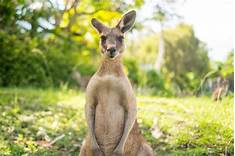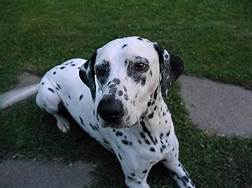Can Kangaroos Be Pets?
Kangaroos are unique and captivating animals that have captured the imagination of people around the world. With their distinctive appearance, hopping gait, and enigmatic behaviors, it's no wonder that some may consider keeping them as pets. However, before jumping into the decision of owning a kangaroo as a pet, it's essential to understand the complexities involved in caring for these animals and the potential risks associated with them.

Kangaroo Species and Their Suitability as Pets
Kangaroos belong to the Macropodidae family, which includes various species such as red kangaroos, eastern gray kangaroos, western gray kangaroos, and more. Among these species, the red kangaroo is the largest and most commonly seen in captivity. While some people may perceive kangaroos as docile and gentle creatures, it's important to recognize that they are wild animals with inherent instincts and behaviors that can pose challenges in a domestic setting.
Legal and Ethical Considerations
In many countries, it is illegal to keep kangaroos as pets. Even in jurisdictions where it may be technically allowed, obtaining the necessary permits and ensuring compliance with animal welfare regulations can be a complex and time-consuming process. Additionally, the ethical concerns surrounding the captivity of wild animals and the disruption of their natural behaviors raise questions about the appropriateness of keeping kangaroos as pets.
Behavioral Challenges and Safety Concerns
Kangaroos are large, powerful animals with sharp claws and strong legs that can inflict serious injuries. They are known for their unpredictable behavior and can become aggressive when feeling threatened or stressed. Their natural instinct to hop and jump means they require a significant amount of space to move around, which can be difficult to provide in a domestic environment. Furthermore, kangaroos are social animals and thrive in communal living, making it challenging to keep them as solitary pets.
Dietary Requirements and Specialized Care
Kangaroos have specific dietary needs that can be challenging to meet in captivity. Their diet consists mainly of grasses, leaves, and other plant material, which requires a large quantity of fresh vegetation daily. Providing a balanced and nutritious diet for a kangaroo requires careful planning and access to suitable food sources. Additionally, kangaroos need specialized veterinary care and routine checkups to ensure their health and well-being.
Conclusion
In summary, while kangaroos may appear to be fascinating and exotic pets, they are not suitable for most individuals. Their complex behavioral patterns, legal and ethical considerations, safety concerns, dietary requirements, and specialized care make them challenging and potentially dangerous animals to keep as companions. It is essential to respect the inherent nature of wild animals and recognize that they belong in their natural habitats, where they can thrive and engage in their natural behaviors without the constraints of captivity.
Declaration: All article resources on this website, unless otherwise specified or labeled, are collected from online resources. If the content on this website infringes on the legitimate rights and interests of the original author, you can contact this website to delete it.




